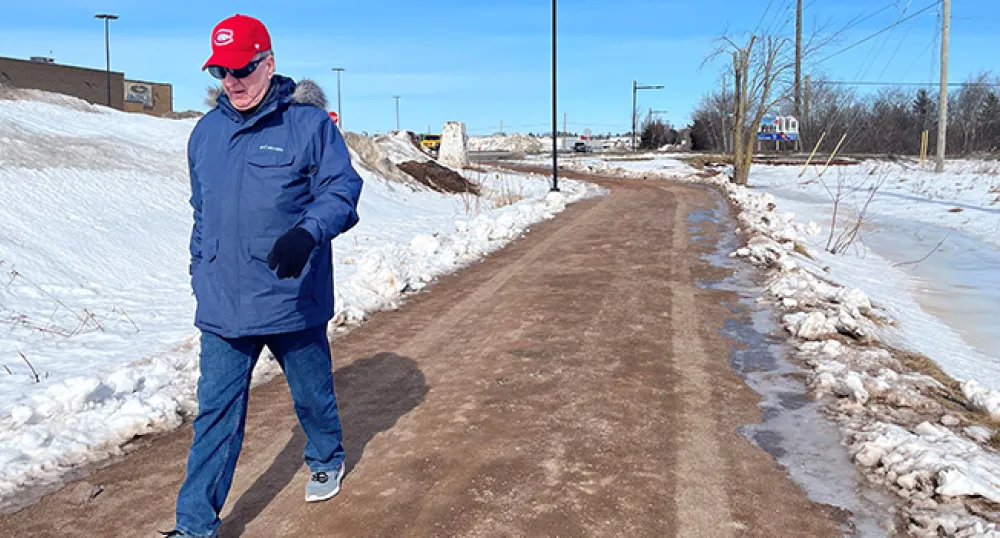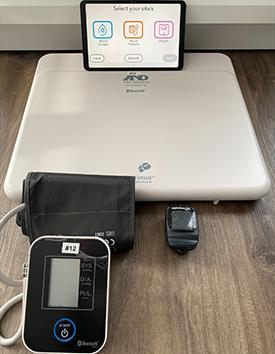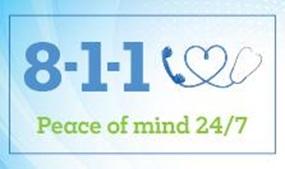Cardiac Rehab Program: “I feel like I was given another chance at life”

Leon Robinson figured he wasn’t having a heart attack.
The 74-year-old Charlottetown man woke up early one Saturday morning last May. He and his wife were going shopping for a new car that afternoon, so he decided to clean out the old one. As he vacuumed the seats, he felt a burning in his chest and arms.
“My wife was still sleeping when I came inside, so I sat down in my chair to rest,” he remembered. “After ten minutes, the burning went away. It couldn’t be a heart attack.”
Robinson was wrong, but he wouldn’t know it until later that night. He went about his day as planned. He bought a car. He ate supper. He watched a ball game and headed to bed. Not long later, the burning sensation was back.
“My wife said, ‘we’re going to the hospital,’ so we did. As soon as I said the words ‘chest pains,’ the nurses whizzed me right into Emergency. I remember the doctor saying I’d had a major heart attack.”
The next few weeks were a blur as Robinson made multiple trips to Saint John for treatment, including a triple-bypass.
“I was lucky, and I had good people taking care of me. When it was all done, my family doctor recommended I sign up for the 12-week rehab program. When I saw it was online, I figured it wasn’t for me. I was wrong about that, too!”
– Leon Robinson
“This is around the time when we meet most patients,” said Lindsay Hansen, the program lead for Cardiac/Pulmonary Rehabilitation with Health PEI. “The crisis period has ended. There has usually been an intervention of some kind. The patient is ready to start taking care of themselves, but they’re usually scared about what that means.”
The Health PEI rehabilitation programs for cardiac and pulmonary patients are normally held in-person. The programs quickly moved online as the COVID-19 pandemic progressed.
“I really wasn’t interested doing anything online,” said Robinson, thinking back. “I’m just not a tech guy. I didn’t think I would get anything out of it.”
As time passed, Robinson realized he needed to do something. Here he was, weeks after a life-changing heart attack, but his life had not really changed. He’d heard good things about rehab from a friend in Ontario, so he signed up for the next session.
The program began with an in-person assessment, which checked him for several factors, including blood pressure, heart rate, and general fitness.
“That’s important, to give us a baseline of where the individual is at,” said Hansen. “Each participant is given a very patient specific exercise prescription to do at home.”
Before COVID, participants would come to an in-person session every week for the next three months. Each session would include a check-in with their group, an education session, and a reassessment of fitness and general health.
“Moving online, we were missing our ability to monitor their progress. With the help of Health Care Excellence Canada, we were able to provide each participant with a Remote Patient Monitoring device, which allowed Health PEI staff to keep track of the participants’ fitness and general health.”
– Lindsay Hansen
Each device came with tools to check blood pressure, blood oxygen levels, and heart rate. The information was automatically sent back to the rehab program. Participants were also able to join in their virtual sessions without having to set up their own technology to do so.
“We were able to provide these individuals with a data-plan equipped iPad, which allowed them to participate wherever they were,” said Hansen. “We even had a farmer join us for a session from the seat of a tractor!”
“All of my worries about being online were taken care of right away,” said Robinson. “I got something out of every single session. I learned so much about nutrition and fitness. More than anything, I felt supported. It was a very emotional time for me, right after my heart attack. It was good to connect with other people who were going through the same thing as me.”
Hansen said the program will return to in-person sessions as soon as the COVID restrictions allow, but the lessons of the online experience will not be put aside. “Ultimately, the online program allowed more people to participate who wouldn’t normally be able,” she said. “Not everyone can get to an in-person session every week, for many reasons. This made it accessible from anywhere by anyone who is comfortable with the technology.”
Months later, Robinson is feeling better than he has in years. He’s taken what he learned through the program and applied it to his life.
“I hardly recognize myself,” he said with a chuckle. “By the end of my three months, I had made improvements in 95% of the tests they gave me. I do over 150 minutes of aerobic exercise every week. I eat better. I’m not worried about the future. My wife and I have been married 52 years. I have two daughters and a bunch of grandchildren. And a great-grandson—my namesake! I don’t want to miss a minute with any of them. I feel like I was given another chance at life by this program.”
Find out more about the Cardiac and Pulmonary Rehab Programs offered by Health PEI today!



